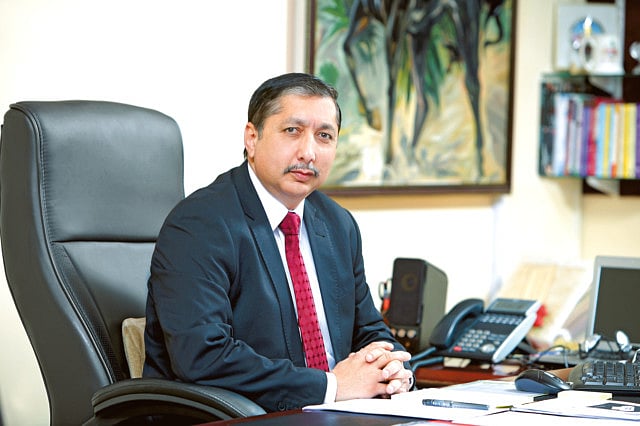Thirty five years in the field of education is a long time indeed – am I so old?
If I had a chance to start all over again, I would choose no other profession. I was a part-time musician for a number of years and though this may sound odd, singing before a crowd of 500 or teaching a class of 50 – the thrills are the same, but in teaching, the effects lasts longer. Teaching provides a sense of purpose and meaning to one’s life. It allows you to know that you are, in a small way, impacting minds that could go on to change the course of history. There’s no greater joy than to see an ex-student come back with the same or even greater respect than in the school days and attributing some part of who they are today, to some academic or moral training imparted by you years ago.
As a young teacher starting out in 1978, I thought of just two things - first, about correcting papers, awarding marks and putting a fancy signature underneath and, second, about how nice it would be walking around with everyone calling me ‘Sir.’
My first day in school as a teacher was terrifying – firstly, because I had joined the school I had studied in a few years ago, and secondly, there was no one to tell me what I had to do. There was no induction programme, no teacher handbook, no peer observation or micro teaching – it was as if I was thrown into the sea where I could either swim or sink. I learnt by trial and error and succeeded in becoming a good teacher.
What was my school like in Allahabad - a small town in India and the birthplace of Jawaharlal Nehru, Indira Gandhi and Amitabh Bachchan?
No computers or internet, website had not been heard of. No counsellors, special educators, projectors or smart boards. Father’s Day, Mother’s Day and Grandparents’ Day were unheard of and on Children’s Day, we were given an ice cream as a treat! Yet, we enjoyed every day of our school years and left with heavy hearts when we graduated.
Schools were tough places to be in – corporal punishments were not frowned upon and during assembly, pupils stood at times for 45 minutes at a stretch without complaining. Many weak pupils were detained in the same class each year but no questions were asked or letters of complaint written. Parents and teachers were in accord and children were taught not to challenge authority. And year after year, the school produced men of character and integrity, men who could hold their own in society and make a difference in the world.
Fast forward to 2001. I flew into Dubai to join GEMS Education. It took me three years to make the decision. Leaving my comfort zone was going to be a challenge. However, it is a decision I have never regretted.
Cut to the present: Ever-inquisitive pupils definitely worldlier than their India counterparts, smart classrooms, high-speed internet, iPads and other digital devices are what Dubai students are all about. The need today is for learning to be interesting and interactive. It’s not an option but a requirement.
We at GEMS have begun to set the pace for interactive and collaborative learning along with the use of technology in classrooms. Many schools encourage the use of digital devices at home and in school, as it opens up a new world of learning which cannot be compared to what is available in textbooks. It is up to us - parents and teachers, to embrace these changes and not resist them or else we will churn out students “beautifully equipped to deal with a world that no longer exists” as Eric Hoffer put it.
Web-based education allows for students to work at their own pace, test out of programs, ask for help, change geographic locations without losing ground and get involved with like-minded communities. This means a shift for teachers too, who have had to give up their age-old practices and embrace something new in order to keep pace. Classrooms do not look, feel or function like they did 10 or 15 years ago. There is no better time than now for invention and innovation. This is essential in an ever-expanding global landscape, where we are becoming more independent and more dependent on each other at the same time.
The role of a teacher has seen a paradigm shift – from an educator to a facilitator, though the essential role remains to draw the best from a curious child, to power the light to glow brighter. Teaching diplomacy, tolerance, democracy, leadership skills and values combined with math and reading leads to a tipping point for global change. It is in the confines of a classroom, which is now extending beyond its physical boundaries that teachers get to influence and create brilliant thinkers, innovators and leaders.
(Michael Guzder is Executive Principal, The Millennium School, Dubai. He has spent 35 years in the field of education. His goal as an educator is to ensure holistic development of the child by providing ample opportunities to explore their talents, interests and passions.)
Sign up for the Daily Briefing
Get the latest news and updates straight to your inbox
Network Links
GN StoreDownload our app
© Al Nisr Publishing LLC 2026. All rights reserved.
